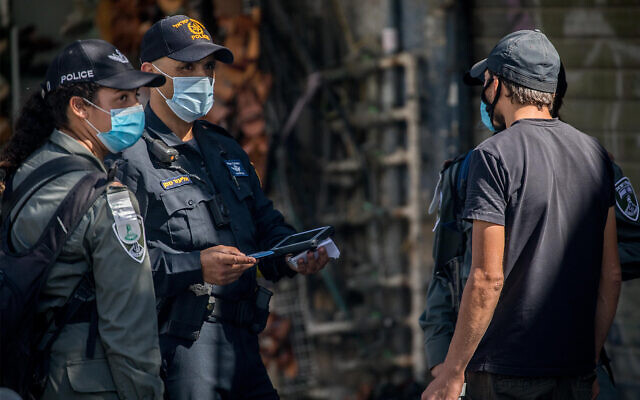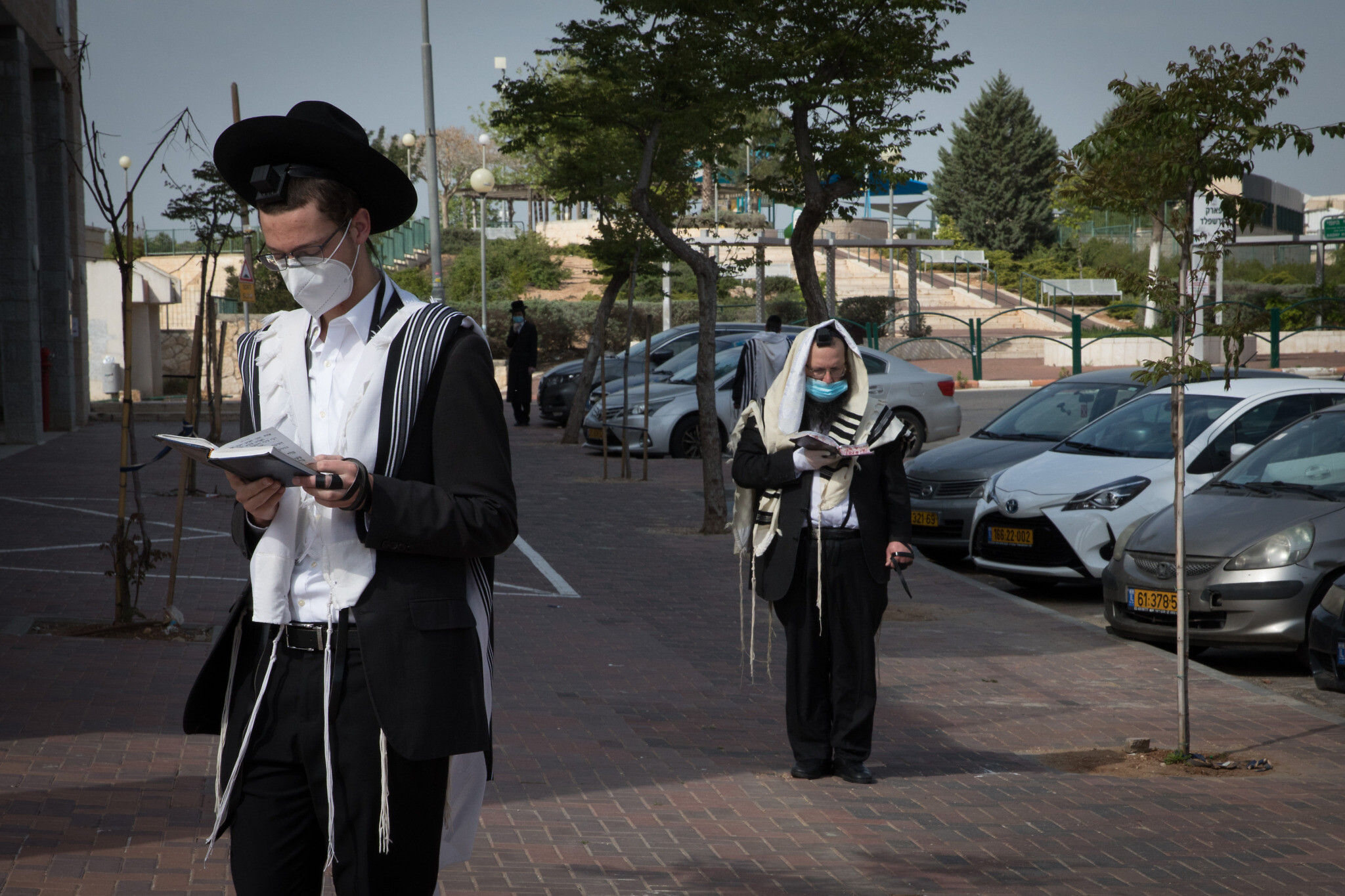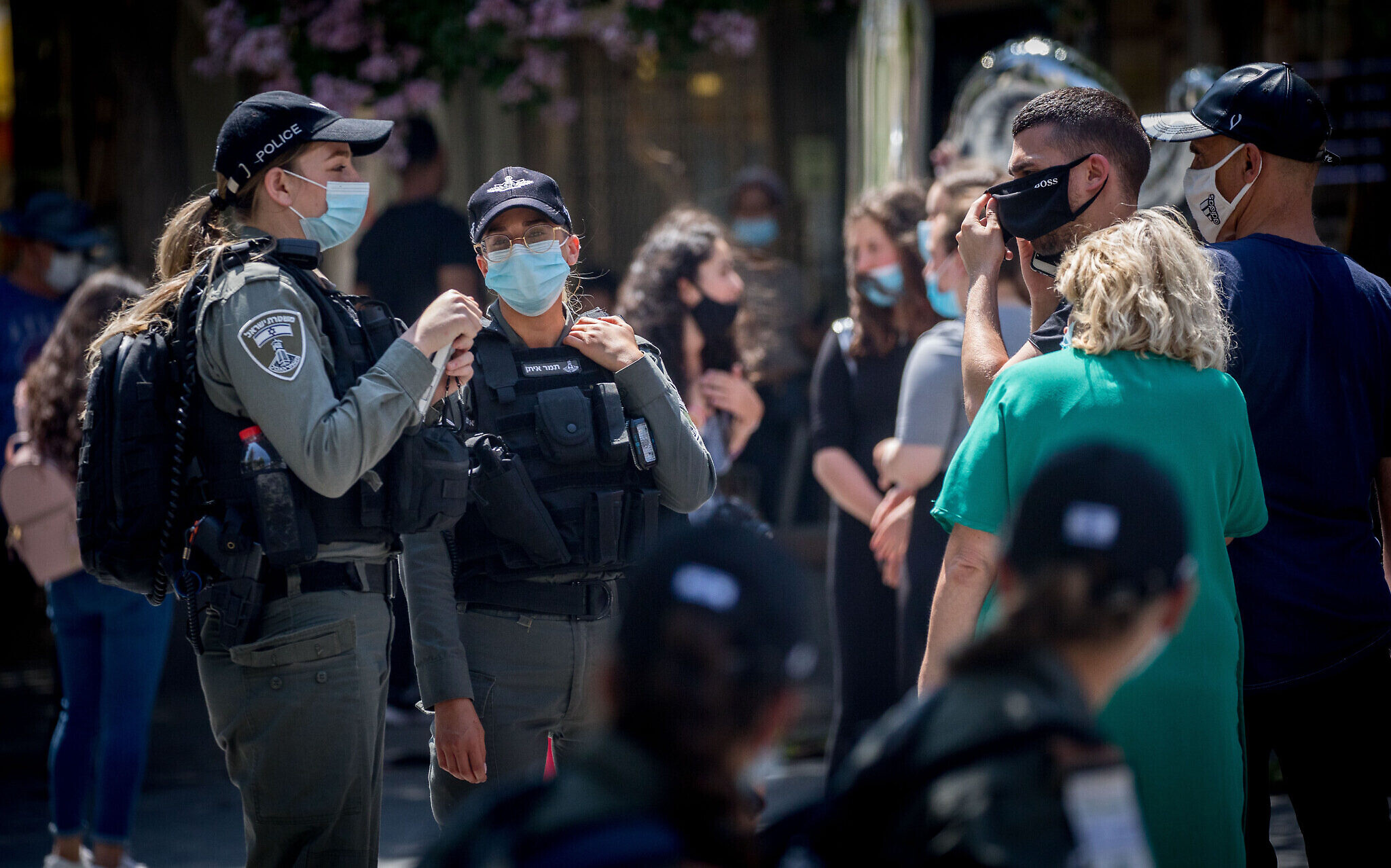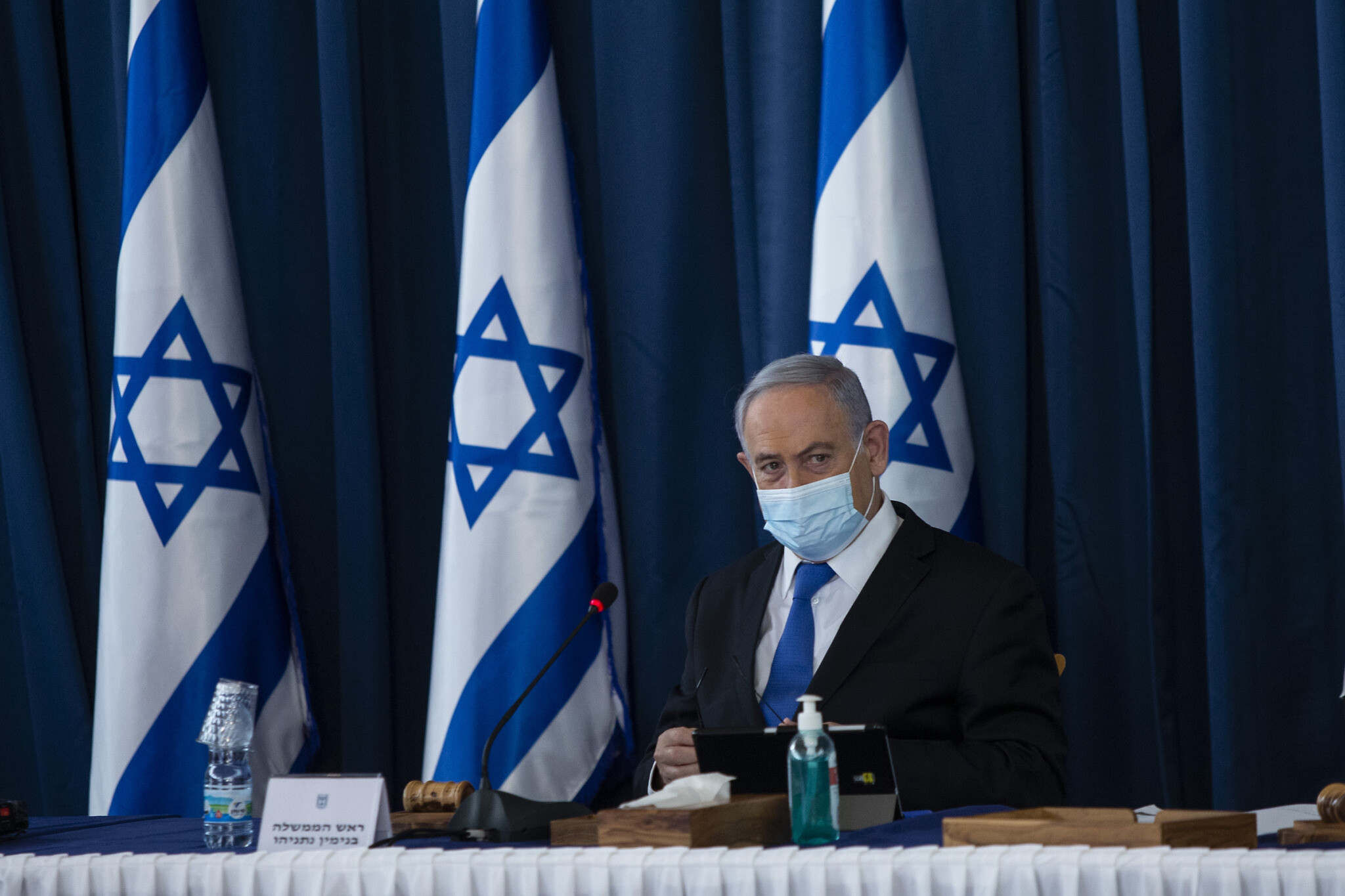Beitar Illit closed for 7 days starting Wednesday afternoon after infections skyrocket 224% in past week; mayor decries late night government announcement as a ‘disgrace’

The ultra-Orthodox city of Beitar Illit was declared a restricted zone on Tuesday as coronavirus infections spiked in the city.
The lockdown on the city’s municipal area will last seven days, starting at 1 p.m. Wednesday.
The settlement of some 55,000 residents, almost all ultra-Orthodox, is located south of Jerusalem.
“Entry into, and exit from, Beitar Illit will be restricted, as will be movement and business within the city itself,” the Prime Minister’s Office and the Health Ministry said in a joint statement, without providing further details.
“For more than a month, the trend in the morbidity of the coronavirus in Israel has been on the rise,” the statement said. “Due to the rise, in recent days different restrictions have been put in place that apply to the entire State of Israel.”
“However, due to the significant morbidity in the city of Beitar Illit, even after imposing restrictions on gatherings and the education system in the city, the position of professionals in the Health Ministry at this time requires additional, significant measures,” the statement said. “Faced with the significant fear about the spread of the disease in the city and beyond, it was decided to declare the city a restricted area.”
The city has 240 active cases for a rate of 389 active infections per 100,000 people. The rate of increase in active cases in the past week was 224 percent, the statement said.

The lockdown was initially set to begin at 8 a.m. Wednesday, but was later pushed back to 1 p.m., following criticism from Beitar Illit’s mayor, Meir Rubinstein. The municipality announced the delay in the early hours of Tuesday morning.
Rubinstein lambasted the lockdown on the city after the government announcement.
“The failures of the Health Ministry in taking care of the second wave are embodied in this outrageous decision,” Rubinstein said, according to the Walla news site.
Rubinstein claimed that he had heard of the likely closure of the city earlier Tuesday through media reports and that the official message came out too late for residents to prepare.
“A notice about a lockdown that comes out at 11 p.m, when most of the city’s residents are sleeping, is a disgrace,” Rubinstein said. “The residents of Beitar Illit will wake up tomorrow to a city that is closed and closed-off.”
In the early months of the outbreak in Israel, ultra-Orthodox communities were hit particularly hard. The city of Bnei Brak at the beginning of April was the first city in Israel placed under a strict lockdown.
A report last week from the Corona National Campaign Information and Knowledge Center showed that the rate of infections in the ultra-Orthodox community is twice that of the rest of the population, Hebrew media reported.
The new closure comes as Israel struggles to put a lid on a surge in new infections.
The Health Ministry on Tuesday evening released new figures showing 1,137 coronavirus infections confirmed in the past 24-hours, in the largest single day tally since the start of Israel’s outbreak. The Health Ministry also announced five new deaths, bringing the toll to 342, an increase of eight since Monday evening.
As of Tuesday night, the number of total confirmed cases in Israel since the start of the outbreak stood at 32,222. The number of serious cases was down from 88 to 86, while the number of people on ventilators dropped to 34, two fewer than on Monday.

Another 86 people were in moderate condition, with the rest suffering mild or no symptoms.
The last few weeks have seen the reversal of many of the gains made in the fight against the coronavirus in recent months. New daily virus cases, which had dropped to low double digits through most of May, have soared to over a thousand a day, and the number of active cases has reached an all-time high of more than 13,600.
The current increase in weekly infections in Israel is one of the highest in the world, according to a chart published Monday afternoon by the Health Ministry.
Criticizing the authorities’ handling of the ongoing outbreak and describing a chaotic and ineffective approach to tackling the crisis, the director of public health in the Health Ministry announced her resignation earlier Tuesday.
In a lengthy post on her Facebook page, Prof. Siegal Sadetzki warned that “Israel is heading to a dangerous place.”
The government on Monday passed a raft of restrictions to contain the renewed outbreak, including limiting restaurants and synagogues, reducing the number of passengers on public transportation, hiking fines for not wearing face masks and shutting down event halls, cultural venues, swimming pools, gyms, bars, and nightclubs.
Israel is “a step away from a full lockdown,” Prime Minister Benjamin Netanyahu reportedly told cabinet members during a special meeting. While falling short of shutting down the country like earlier this year, the new measures are a significant step back from May’s reopening of the economy.

In an attempt to streamline Israel’s response to the new outbreak, Defense Minister Benny Gantz and Health Minister Yuli Edelstein agreed on Tuesday afternoon to up cooperation on the coronavirus crisis between their ministries.
“There is a need for real cooperation,” Edelstein said during a visit to Home Front command headquarters.
Gantz had mounted a public push for his ministry to take over more operational aspects of dealing with the pandemic, amid widespread criticism of the Health Ministry’s handling of the crisis.
The push has angered Netanyahu, who reportedly stormed out of a meeting of the coronavirus cabinet last week after Gantz made his wishes public. The premier accused him of trying to play politics.
The army has already announced that it will assign soldiers to aid an overburdened quarantine hotline run by the Health Ministry, and has begun to reopen hotels to house people in isolation.
As reported by The Times of Israel
